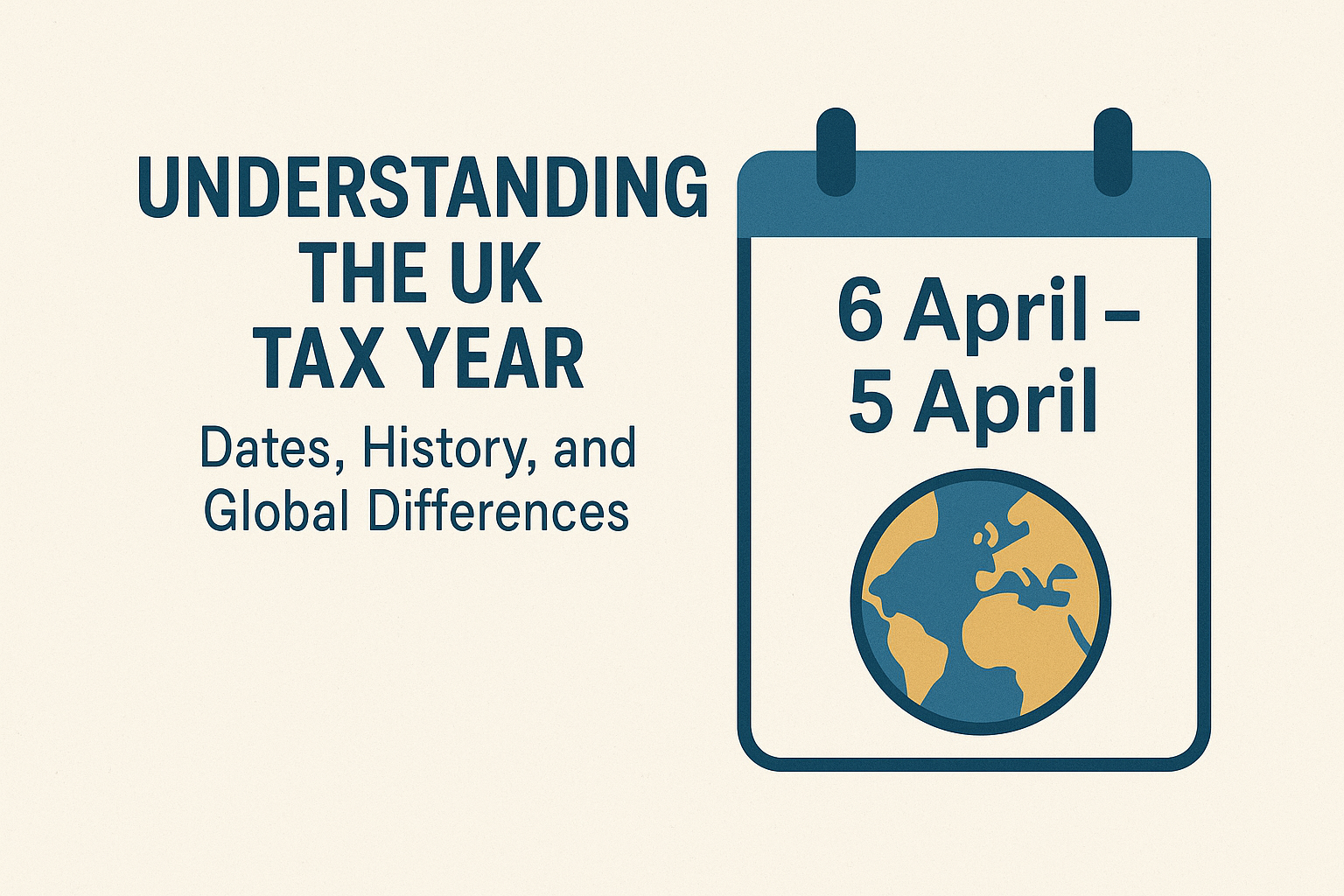Understanding the UK Tax Year: Dates, History, and Global Differences

When we talk about the tax systems of different countries around the world, the majority of the nations follow the same structure, which aligns their tax system to the calendar year or the start of the government. However, there is one nation which follows neither, and that is the United Kingdom.
The tax year dates of the UK stand differently, as it starts on April 6 and ends on April 5 the next year. The unique UK tax year dates have caused confusion and curiosity in many people, and you will be surprised to know that this is not some random date chosen on an impulse.
There is a specific timeperiod in the history of the country that is responsible for this tradition, which is both unique and interesting, and this article will tell you everything that you should know about the UK tax year dates, why they differ from much of the world, and what it means for individuals, businesses, and anyone interacting with the UK tax system.
What are the Tax Year Dates in the United Kingdom?
As we have already mentioned, Tax Year Dates in the United Kingdom don’t follow the same structure as the rest of the world, as they neither follow the calendar year nor the start of the new government. The dates followed in the country are as follows:
- Start Date: 6 April
- End Date: 5 April (of the following year)
These dates apply to individuals (for Income Tax and National Insurance), self-employed people, and pension calculations. Businesses may have different accounting years, but for personal tax matters, these are the fixed dates.
Why does the UK tax year start on April 6? Understanding the History
Now, if you are also interested in learning why the Tax Year Dates of the UK are different from those of the world, then you need to go back in history to the year 1582.
- From the Julian to the Gregorian Calendar
Most of Europe moved from the Julian calendar to the Gregorian calendar in 1582 to correct inaccuracies in the way the solar year was assessed. But the new calendar was not introduced in Britain until 1752, at which time the Julian calendar was eleven days out of whack.
- The Start of the New Year
Until 1752, March 25 (Lady Day) marked the official beginning of the British new year. Financial and judicial operations were scheduled for one of the quarterly dates. When the Gregorian calendar was adopted in Britain, eleven days—that is, the day following September 2, 1752, became September 14, 1752—were “lost. “
- Tax Collection Adjusted
To make up for the 11 days lost due to the Treasury still having to collect taxes for the whole year, the tax year started on April 5 instead of March 25. The Julian calendar was altered one last time later in 1800, shifting the beginning to April 6, where it has remained ever since, with the addition of a leap day not present in the Julian calendar.
Though with a very reasonable (albeit complex) explanation, the UK’s tax year is currently out of step with the rest of the world as a result of the mix of calendar change and historical traditions.
How Does This Differ From Other Countries?
Most of the countries in the world either start their tax year with the new year, which means that they calculate it from January 1 to December 30. Whereas, there are certain countries that depend on the government-aligned fiscal year for tax purposes. Take a look at the way these countries organise their tax year.
- USA: 1 January to 31 December
- India: 1 April to 31 March
- Australia: 1 July to 30 June
- Canada: 1 January to 31 December
Why is the Tax Year Date of the United Kingdom Important?
As a resident of the UK, you need to know about the Tax Year UK and when it starts. There are many other people who should be familiar with the tax system of the country.
- Work or live in the UK.
- Have freelance income or own a company
- Hold UK property or investments.
- Are you submitting a UK Self-Assessment tax return
- Obtain government support or British pensions.
To wrap up, though its tax year first seemed strange, the UK’s historical origins provide a fascinating look into the connection between traditional systems and current governance. Whether you’re a business owner, a UK taxpayer, or an employee working overseas, understanding these dates is crucial to staying compliant and maximising your financial planning.


